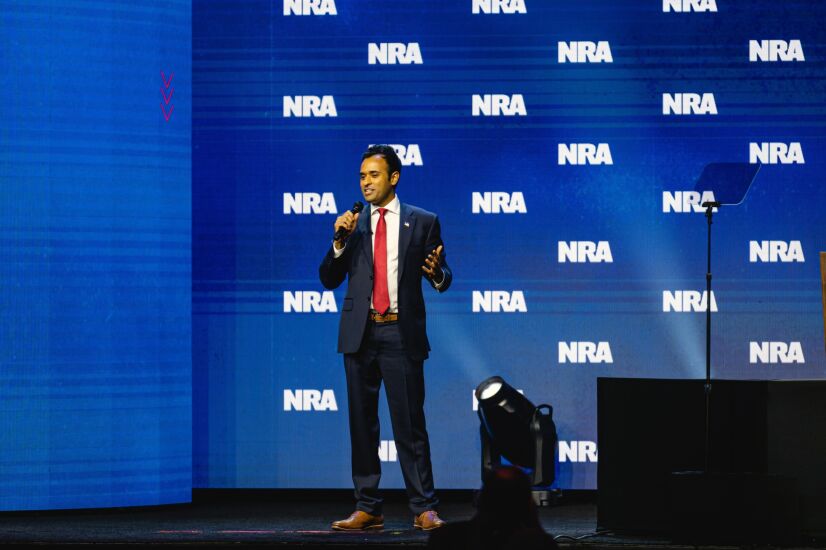More than two dozen funds investing in direct opposition to ESG criteria topped a combined $2 billion in client assets earlier this year — a sevenfold jump from the same time in 2022.
A record $376 million flowed into the nascent category of asset management products in the third quarter last year, according
The report analyzed a grouping of funds that remains tiny compared to
"It was the first time that Morningstar systematically looked into anti-ESG funds," Stankiewicz said at a webinar discussing the report's findings. "It's always kind of fun to start research from the ground up that hasn't been done, and I think we learned a lot."
After the flows "skyrocketed" last year, they have been more "muted" in 2023, she said, declining to predict whether there may be an additional influx during the next presidential race. Last year's midterm elections included many Republican candidates who regularly
Ramaswamy
"The ESG movement contends that all it needs to do is refocus capitalists on their own long-run interests and that doing so will also solve all the world's injustices," he wrote in the book. "This assertion is founded on stakeholder capitalism's nebulous promise that since we're all in this thing called life together, what's best for the group in the long run will also necessarily be best for the individual. But what's best for a family isn't automatically what's best for each member of it. What's best for a company isn't automatically what's best for each of its employees."
Sustainable investment manager
"It is purely rhetoric," he said of the backlash. "Its intention is to divide and say, 'It's another us-versus-them thing. It's not about investing. It's just simply political rhetoric."
Few voters receptive to those arguments would have been likely to invest with Earth Equity or firms like it anyways, he added.
For a description of the five main categories of anti-ESG funds in Morningstar's research into 26 different products, scroll down the slideshow. To see research about which publicly traded companies get the best and worst grades on racial equity,
Note: The information below comes from the report by Morningstar research analysts Alyssa Stankiewicz and Mahi Roy from earlier this month, "







